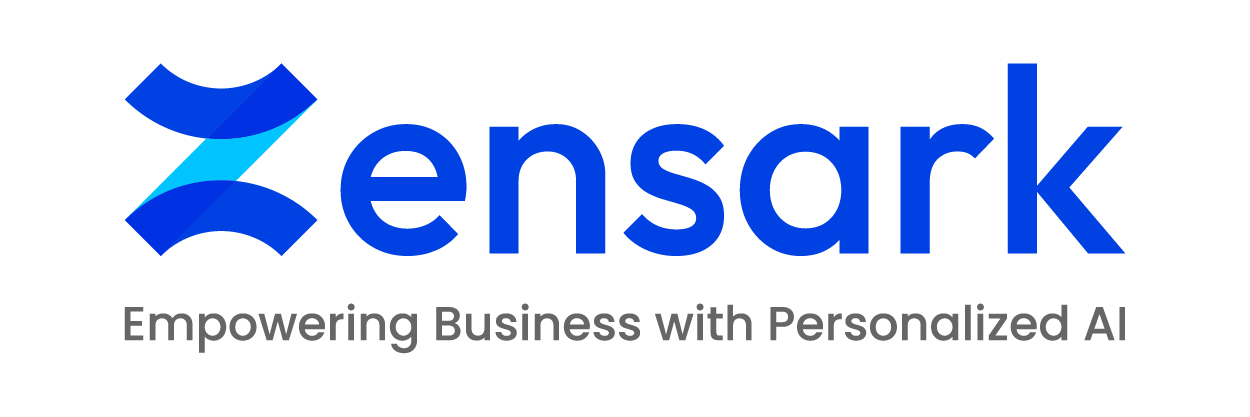From Siloed Data to Strategic Growth: D365 Integration Unlocks Efficiency
Zensark AI Division
June 26, 2024

In today’s fast-paced business environment, financial data plays a critical role. It’s the lifeblood of informed decision-making, strategic planning, and ultimately, a company’s success. However, managing financial data can often feel like wrestling a multifaceted beast.
Information resides in disparate systems, demanding constant attention for manual tasks like data entry and report generation. This not only consumes valuable time but also creates opportunities for errors and inconsistencies. The struggle to maintain a holistic view of financial health becomes a constant battle, hindering growth and profitability.

The Struggles of Disparate Systems:
- Limited Visibility: Obtaining a comprehensive view of the company’s financial health becomes a tedious exercise in data extraction and reconciliation. This lack of visibility makes it difficult to identify trends, analyze performance, and make informed decisions.
- Inconsistent Information: When data is scattered across systems, the risk of inconsistencies increases. Duplicates, outdated records, and errors can lead to inaccurate financial reporting and complicate financial processes.
- Inefficient Workflows: Manual data entry, transfer, and manipulation between systems is a time-consuming and error-prone process. This inefficiency consumes valuable resources that could be better directed towards strategic activities.
- Delayed Reporting: Generating reports often requires significant manual effort to gather data from disparate sources. This delays the reporting process and hinders timely decision-making.

D365 Integration: Bridging the Gap

Streamlining Customer Management:
D365 integration creates a synchronized customer master record. This eliminates the need to maintain separate records in different systems, ensuring everyone across the organization has access to the latest and most accurate customer data. Streamlined customer management translates to:
- Improved Customer Service: With a unified view of customer data, representatives can provide faster and more personalized service. Access to a complete customer history allows them to address inquiries efficiently and identify upselling or cross-selling opportunities.
- Enhanced Collaboration: Departments across the organization, from sales and marketing to finance and customer service, can collaborate more effectively with access to the same customer data. This fosters better communication and a more cohesive customer experience.
- Reduced Errors: Eliminating duplicate records and outdated information minimizes the risk of errors in customer data, leading to more accurate financial reporting and improved cash flow management.

Automating Manual Processes:
- Automated Payment Processing: Invoices are automatically generated and sent, while payments are received and recorded electronically. This eliminates manual data entry and streamlines the payment cycle, improving cash flow visibility and reducing late payment penalties.
- Automated Deduction Management: Deductions from sales, including denials, splits, and write-offs, are automatically processed within the system. This reduces the time and effort required for manual reconciliation and ensures accurate financial records.
- Real-Time Order Management: Order data and updates flow seamlessly between systems, eliminating the need for manual data transfer. This allows for immediate fulfillment of orders and provides real-time inventory visibility, improving customer satisfaction and operational efficiency.

Unlocking Data-Driven Insights:
- Generate Real-Time Reports: Detailed and accurate reports can be generated on demand, providing valuable insights into financial performance, sales trends, and customer behavior. This empowers management to make data-driven decisions that optimize financial processes and drive growth.
- Identify Opportunities for Improvement: By analyzing data trends, companies can identify areas for improvement in areas like inventory management, cost control, and resource allocation. This proactive approach allows them to optimize their financial operations and maximize profitability.
- Enhanced Budgeting and Forecasting: With real-time data at their fingertips, financial teams can create more accurate and reliable budgets and forecasts. This enables better financial planning and resource allocation to support strategic goals.

Empowering Informed Decision-Making:
- Improved Visibility into Cash Flow: Real-time access to cash flow data allows for better cash management strategies. Businesses can identify potential shortfalls, optimize working capital, and make informed decisions about investments and loans.
- Enhanced Risk Management: By analyzing trends and identifying potential risks, companies can take proactive measures to mitigate them. This proactive approach protects financial health and ensures long-term business stability.
- Data-Driven Strategic Planning: With a comprehensive understanding of financial performance and market trends, businesses can develop data-backed strategic plans. This enables them to make informed investments, allocate resources effectively, and achieve their long-term financial goals.

The Takeaway: A Catalyst for Growth
- Increased Efficiency: Streamlined workflows and automation free up valuable resources, allowing businesses to focus on core competencies and strategic initiatives.
- Improved Accuracy: Reduced manual tasks and data inconsistencies minimize errors and ensure the accuracy of financial records. This facilitates better decision-making and strengthens financial compliance.
- Enhanced Collaboration: Unified data access fosters better collaboration across departments, leading to a more cohesive and efficient organization.
- Data-Driven Growth: By unlocking the power of financial data, businesses can make informed decisions that drive growth, profitability, and long-term success.
Zensark provides reliable maintenance and support for MS Dynamics 365 – Customization support, Data migration, integration assistance and performance optimization .
